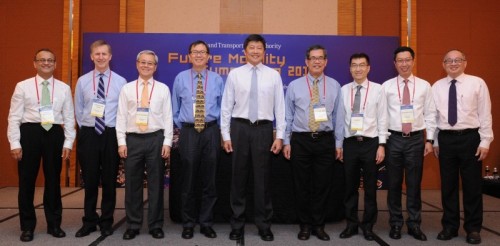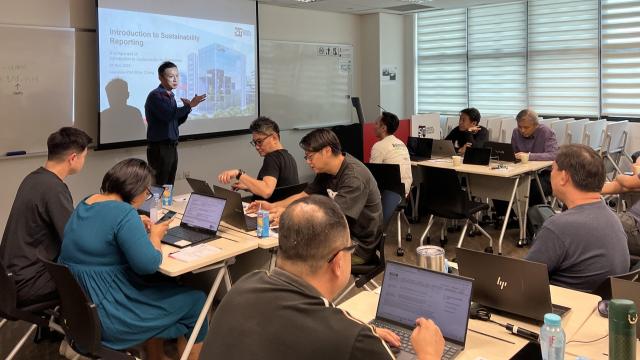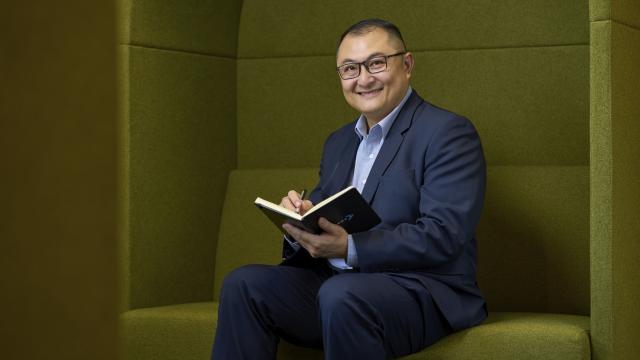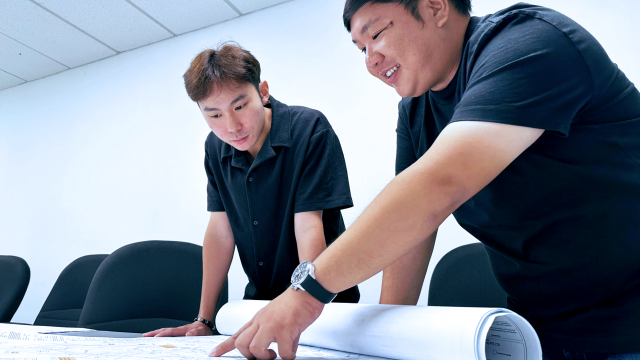
Imagine a future where our city roads are free of congestion and pollution from cars, and where trips can be made in self-driving buses or pods, as and when you need it. Or a smart mobile application that tells you exactly what transport options you have within a 200m radius.
To bring Singapore closer to this future, the Land Transport Authority (LTA) is beefing up its research capabilities, and will intensify efforts to collaborate with universities, professional organisations and industry players to conduct research and technical trials on innovative policies, technological applications and sustainable practices in the transport industry.
Said LTA’s chief executive, Mr Chew Men Leong: “Even as Singapore continues developing into a liveable city with a high quality of life, it also means creating a well-connected people-centred land transport system that meets the diverse needs of commuters with less reliance on cars. To achieve this, we have to step up our capability and investment in the area of research, so that we are able to harness the latest technology and create smart transport choices. The inaugural LTA Future Mobility Symposium is thus organised to showcase LTA’s research collaborations and projects in two specific areas, namely Future Mobility and Self-Driving Vehicles.”
MOUs with three universities
To put greater focus on the existing and future research collaborations between LTA and the research community, Transport Research Centres are being planned for Singapore’s three local universities, namely National University of Singapore (NUS), Nanyang Technological University (NTU) and Singapore Institute of Technology (SIT). The Memorandums of Understanding (MOUs) which LTA today signed with each respective university are the first step towards realising the centres whereby LTA will fund projects to enhance knowledge and drive innovation into specific focus areas, such as active mobility, electro-mobility, self-driving vehicles, geotechnical engineering and condition-based maintenance.
Dr Lee Der-Horng, Director of NUS-LTA Transport Research Centre and Professor from the Department of Civil and Environmental Engineering at NUS Faculty of Engineering said: “We are excited to embark on this new initiative. One example of the research that we will be embarking on is the design and development of a new community-based mobility system. This is to address the need of bridging the last-mile gap for commuters, and could be implemented in residential or business enclaves. With this new NUS-LTA Transport Research Centre, we can look forward to working collaboratively on key areas, such as mobility behaviour and ‘green’ transportation, as well as to formulate sustainable solutions to enhance Singapore’s transportation system and improve commuting experience.”
Said NTU’s Chief of Staff and Vice-President (Research) Professor Lam Khin Yong: “NTU recognises the importance of future mobility research and is dedicated to the research and development in next generation intelligent transport systems and solutions. Over the past years, NTU has transformed the campus into a living lab and collaborated with industry partners like BMW and NXP Semiconductors N.V. to develop, test and commercialise innovative capabilities in electromobility, self-driving vehicles and secure wireless communication technologies. We believe that with NTU’s expertise in applied research, our collaboration with LTA will continue to push the frontiers of mobility research and contribute to Singapore’s vision to adopt a smart transport eco-system and network.”
Professor Simon Yu, Programme Director, Sustainable Infrastructure Engineering (Land & Building Services), SIT said, “At SIT, we are excited to contribute towards building such research capabilities aimed at creating a new vibrant future for Singapore's transportation system. We will work together with LTA in developing simulation-based learning on railway and transportation systems so that both SIT students and working professionals can master important aspects such as signalling, route planning and system engineering through simulated MRT networks.”
Formation of LTA Research Advisory Panel
To advise on research directions, a LTA Research Advisory Panel comprising 12 international and local academics has been formed. The advisory panel is chaired by Deputy President (Research and Technology) of NUS, Professor Ho Teck Hua. The panel will provide recommendations on the objectives and directions of research and development (R&D) to support LTA’s development into an urban transport R&D hub, as well as future sensing for emerging transport mobility issues.To advise on research directions, a LTA Research Advisory Panel comprising 12 international and local academics has been formed. The advisory panel is chaired by Deputy President (Research and Technology) of NUS, Professor Ho Teck Hua. The panel will provide recommendations on the objectives and directions of research and development (R&D) to support LTA’s development into an urban transport R&D hub, as well as future sensing for emerging transport mobility issues.
Encouraging innovation
To encourage innovation among youth and build up the engineering pool for the Public Transport industry, LTA is also launching the LTA Engineering Challenge for Sustainable Future Mobility where tertiary students and engineering professionals can use their creativity, innovation and engineering skills to co-create projects to help create an attractive and robust land transport network.
There will be two challenge topics – “Sustainable Mobility” and “Future Mobility (Self-Driving Vehicles)” – for which participants are invited to rethink how our transport landscape would be like in the years ahead. Under “Sustainable Mobility”, the participants could explore how to make Singapore a “car-free” walkable city, where our street space is centred on pedestrians instead of drivers. Under “Future Mobility (Self Driving Vehicle), participants could use their creativity to imagine how on-demand, door-to-door mobility service provided by self-driving vehicles would transform our transport landscape.
The LTA Engineering Challenge will be carried out with support from the Institution of Engineers Singapore. It is open to students from the Polytechnics, Universities, Junior Colleges and the Institute of Technical Education, and will have an open category for interested professionals in the engineering field. More details will be shared when ready.
Singapore Institute of Technology (SIT) is Singapore’s new autonomous university of applied learning. It aims to be a leader in innovative university education by integrating learning, industry and community.
SIT offers applied degree programmes targeted at growth sectors of the economy. As a new university, SIT offers its own applied degree programmes with a unique pedagogy that integrates work and study. It also offers specialised degree programmes in partnership with world-class universities.



